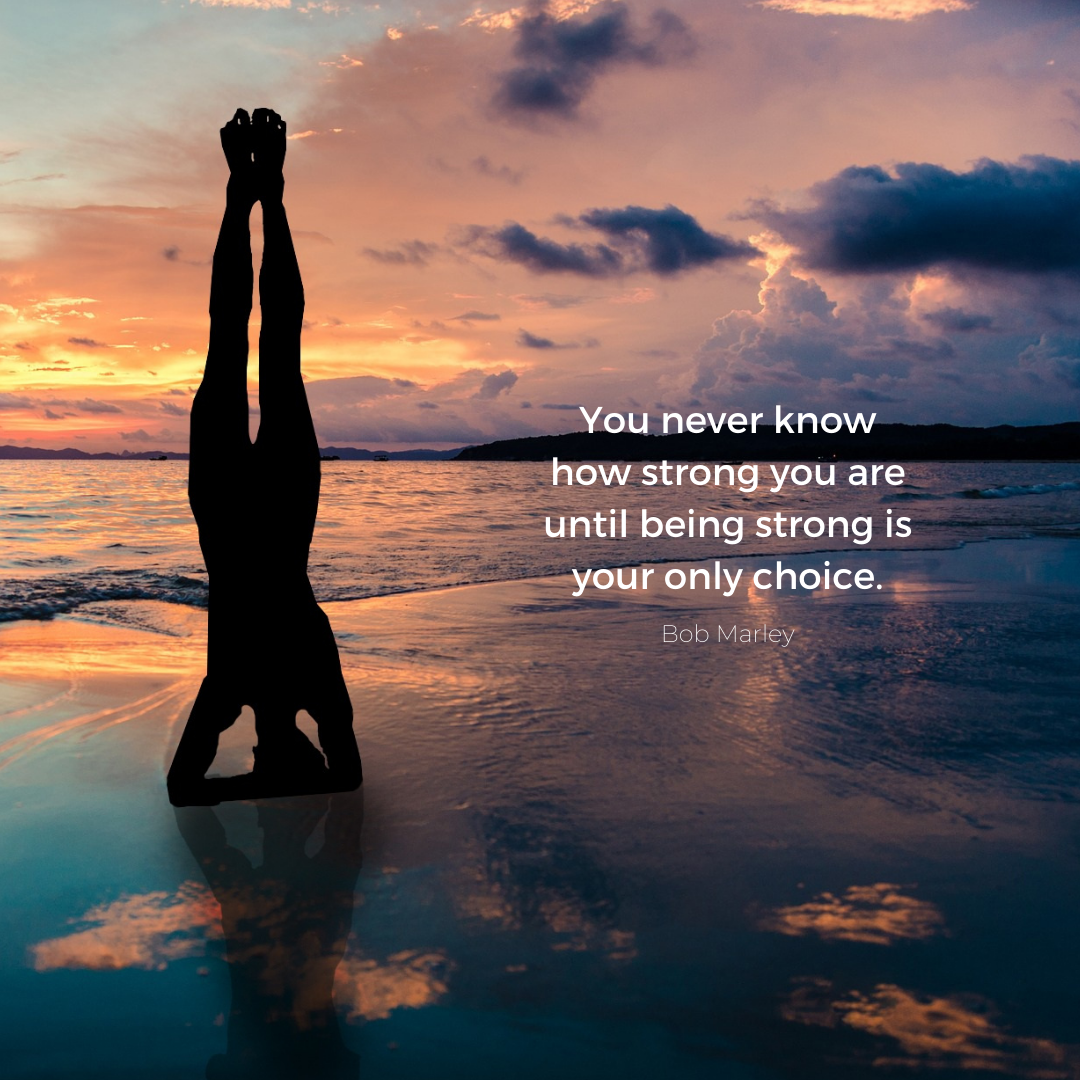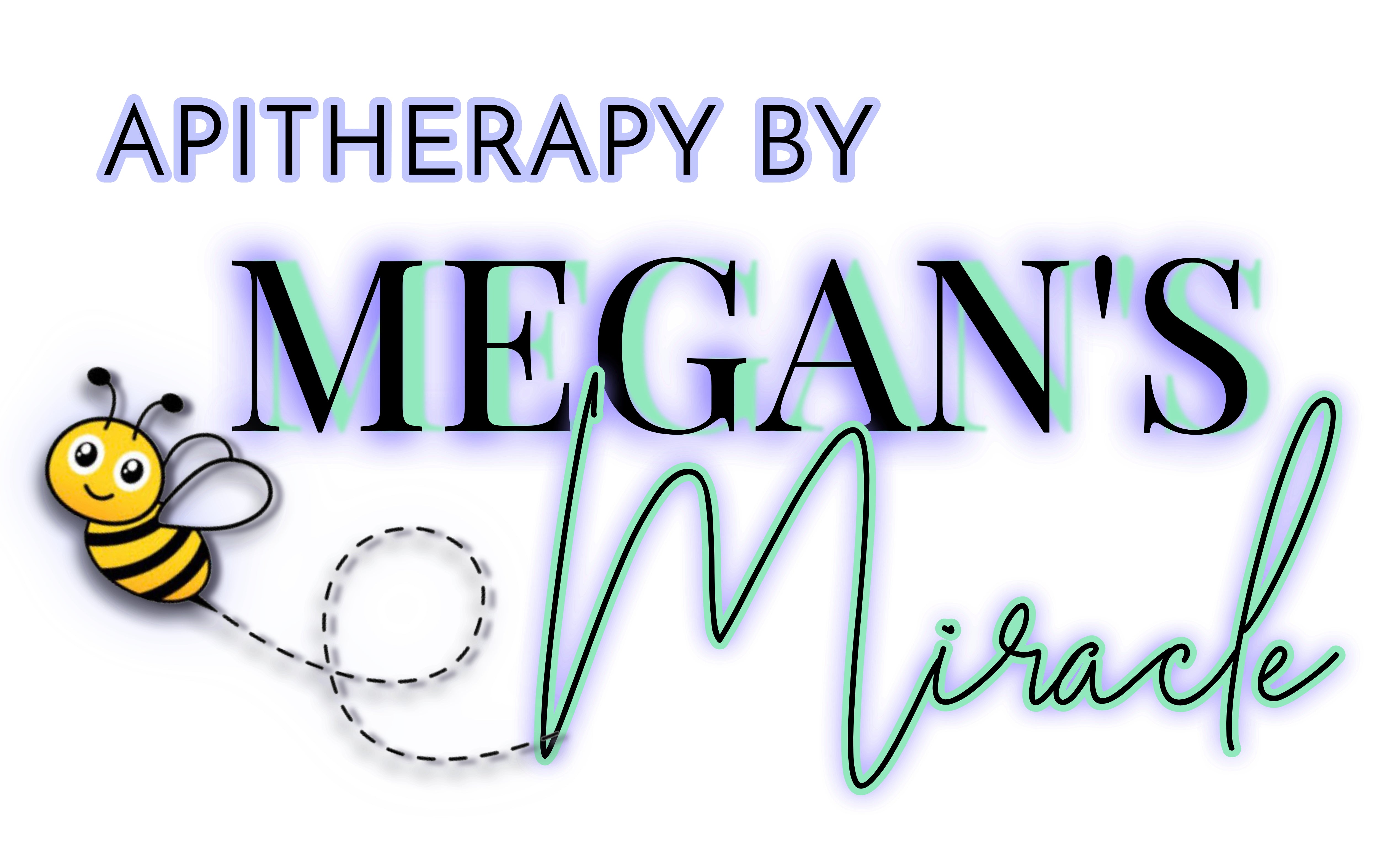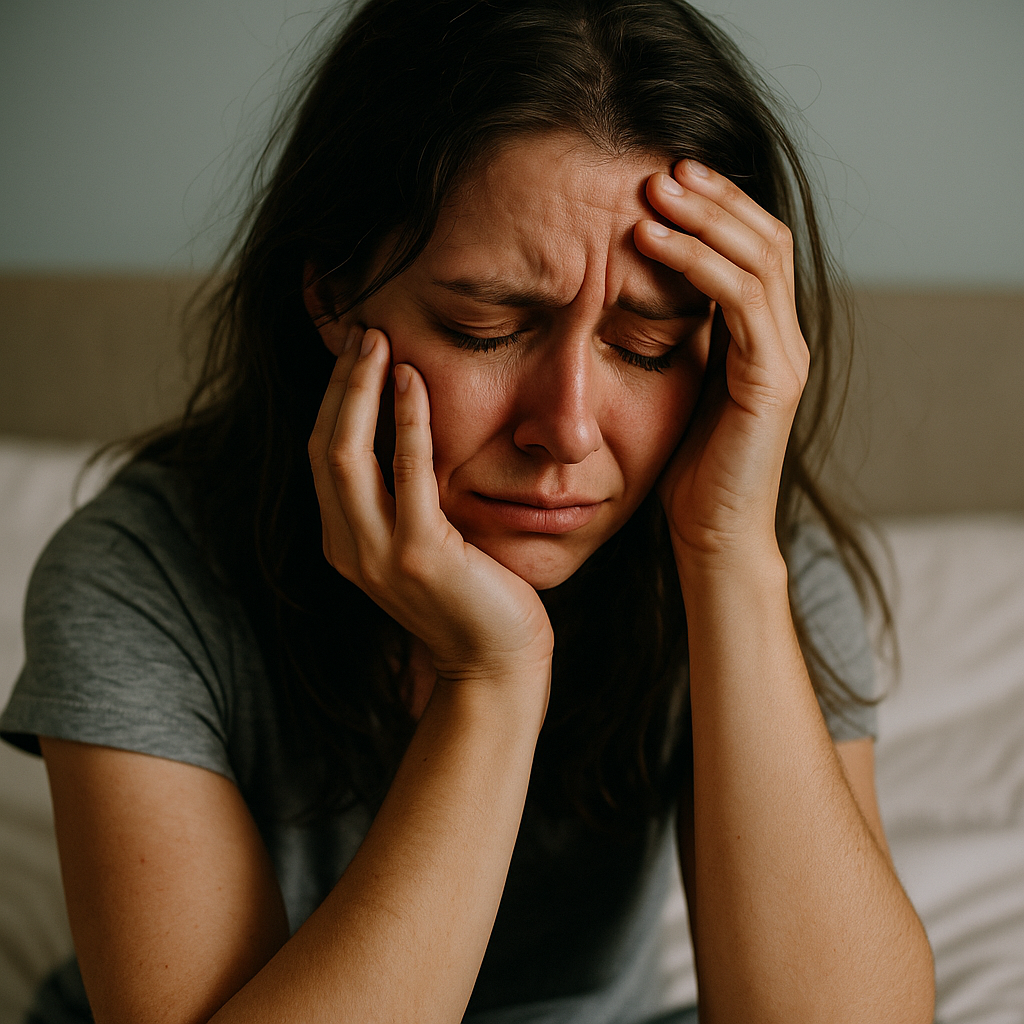Understanding the Paradox of Healing
We love a good comeback story. The big reveal. The “after” photo: glowing skin, bright eyes, hair blowing in the breeze, a green juice in hand.
But what if healing doesn’t feel like the well earned victory lap at all? What if it feels more like being hit by a bus you willingly stepped in front of — again and again — because deep down, you still believed there was a better life on the other side, if only you could just FEEL better.
Mindfulness and Acceptance in the Healing Process
For those of us living with chronic illness, we likely have tried several, or too many different medical paths to get well, often making things more complicated or even the situation more difficult to cure, especially the “mystery” or “controversial” ones like Lyme or Morgellons. Starting the right protocol though, does not immediately cause the pain and other symptoms to magically disappear when we start. In fact, the hardest part often begins when we finally decide to heal and act, and find the right treatment. The raw, physical, and emotional agony of recovery itself is one of the most overlooked and misunderstood chapters of this journey.
THE PAINFUL RECOVERY: WHY HEALING CAN FEEL WORSE THAN BEING SICK
Redefining Success: Progress in the Face of Pain
You think you’re ready. You’ve researched the protocols, found Megan’s Miracle, and seen the amazing results of others who suffered like you. You’ve finally stopped endlessly gathering supplements, desperate for any relief, and put your trust in someone to actually get you started on what might be the last protocol you’ll ever need. Maybe you even found a local practitioner who truly sees you, in case you have an emergency. You’re cautiously optimistic for the first time in seemingly forever.
Then you get started: You receive and begin using Megan’s Miracle GHK-Cu Foaming Copper Butter, following the techniques exactly. Things are starting to work — you can feel it. You move to stage two, beginning Apitherapy based injections and realize you aren't even afraid of needles anymore! The protocol is working and you are growing!
What is Going ON?
Then one night- Nerve tingling and burning, new bizarre rashes, the overwhelming fatigue that makes you question your entire existence, nerve pain and clusters of acne looking red spots appear everywhere. What IS happening is what is needed desperately; Your body is actively pushing out years — or even decades — of toxins, infections, viruses and yes, even emotional trauma. Everything you thought you were leaving behind, suddenly feels magnified.
Instead of the gentle progress of healing you envisioned, and frankly earned, you find yourself back in a daily war with your own body. One minute you’re determined and hopeful; the next, you’re on the floor wondering if you’ll ever feel like yourself again. You consider stopping, giving up. This is where you MUST Push On. Buckle in and know you have support. Stopping here is not an option!
Why Progress Can Feel Like a Setback
And why you need to find your inner strength to get through it
Emotional stress can worsen physical symptoms, creating a vicious cycle where the mind and body keep each other trapped in a constant state of alarm, also known as Fight or Flight(Journal of Psychosomatic Research), and the adrenaline being constantly released by your body to cope with the perceived danger can work directly agianst healing. A 2022 NIH review emphasizes that integrating mental health support into physical recovery isn’t optional — it’s essential.
Beyond the Physical: The Emotional Toll of Recovery
The Mental Marathon: Coping with Chronic Illness Healing
The truth is, recovery can feel lonelier than illness itself. People still *with* you, cheer you on in the beginning — “You’re going to beat this!” — but as weeks turn into months, then years, the enthusiasm fades and sometimes disappears completely.
They never do see the nights you’re curled up, whispering prayers to any higher power who will listen. They don’t see the mornings when standing feels like climbing Everest, or the endless string of days when your mind is so foggy you forget your own grocery list and are too sick to make the trip anyway. They may never know your unbearable frustration at being endlessly sick, misunderstood and not being able to function in the ways you desperately want.
You start to wonder: Is this what healing is supposed to feel like? Am I doing something wrong?
You’re not. You’re just in the part no one warned you about, until now — the part where your real transformation happens quietly, in the messy middle, where Detox Symptoms can come and go loudly and quickly. These, too are very real and unfortunately often left to the patient to figure out how to cope with, alone, until now. Please know, the healing is just more quiet than the pain, but its happening.
COPING WITH THE PAINFUL SIDE OF HEALING
How do we survive this hidden, brutal phase of recovery?
Here are some research-backed ways to keep going when it feels impossible:
- Validate your experience. Your pain is real. Your experience is valid. You don’t need anyone’s permission to trust your own body, intuition and your own eyes. We see you. We believe you. Truly — you can’t shock us at this point. In fact,we encourage our clients to engage in group discussions to share their experiences in a safe space, to know they are most certainly not going through the experience and treatment protocol alone.
- Educate and empower yourself. Understanding what’s happening inside you can turn fear into power. Megan’s Online Master Courses can help you connect the dots and feel less alone. Start the Master Courses Here There's also a book, if reading or audiobooks are your thing, that has invaluable information, that can answer questions you didn't even know to ask. The Body Keeps the Score can educate you on multitudes of symptoms, further explaining how the body can store traumas for decades only to reexperience them when triggered, frequently while detoxing from chronic illness. Learning the how and why could help put the worries to rest, so you can focus on moving past trauma and forward to wellness.
- Find your people. Whether it’s a support group, an online community, or that one friend who doesn’t flinch when you mention “parasitic die-off,” connection is everything (Journal of Health Psychology, 2020). Need even more guidance? Schedule coaching calls with people who’ve been there. Sometimes, having a real voice on the other end of the line is the lifeline you didn’t know you needed. We know that it feels like sometimes you're speaking a different language than others. We speak that language.
- Having experienced guidance to navigate your way through recovery process can make or break success and having help keeping up, maintaining the consistency needed to get well can be necessary when the fog doesn't seem to be lifting. That's a major piece missing from traditional wellness programs. Schedule a call here! We look forward to helping guide you through this from beginning, the messy middle through wellness and beyond.
- Allow yourself to grieve — then keep going. Grieve the lost time, the old identity, the relationships that didn’t survive. Let yourself feel it all — ugly cries included. But remember: grief is a chapter, not the whole book. Like the pain, the grief has to be gone through, not around, to get to the other side, and your wellness back. Understanding the Stages of Grief can help you understand and accept the feelings you are experiencing while battling a chronic illness, which are very similar to the death of a loved one; not a shock.
Mind Over Matter: Psychological Approaches to Symptom Management
- Celebrate tiny wins. Behavioral psychology shows micro-successes help rewire the brain for your much needed resilience. Showered today? Amazing. Cooked a meal? Heroic. Be kind to yourself. Rest and hydrate, and every effort made should be celebrated. Very importantly, this is not a sprint; it’s a winding, often uphill trail, that you do not have to climb alone, anymore.

- Seek professional support. Therapy isn’t just for breakdowns — it’s for breakthroughs. NIH research confirms that integrating therapy improves both mental and physical outcomes. Find a therapist who won’t bat an eye when you say, “I feel like there's monsters eating me alive". This is especially important when one relaizes that A significant 24% of Morgellons patients have considered suicide. Honestly, this is probably low compared to the real numbers, especially when you include sufferers with similar conditions like Lyme disease. Peer counseling and guidance through managing the chronic pain and emotional trauma related to these diseases is important as well, but often times PTSD must be dealt with through professional guidance.
- Establishing a routine can provide a much needed sense of normalcy and control during the unpredictable process of recovery. By setting small, achievable goals and maintaining a consistent schedule, individuals can create structure that supports their physical and mental well-being. This can also assist in maintaining consistency in following protocol, as many chronic illness patients struggle with cognitive impairment symptoms, and otherwise have a lot going on. A routine will keep you on track.
- Don’t forget to laugh (seriously). Humor is medicine. Research shows that laughter can reduce stress hormones, boost immune function, and increase pain tolerance — plus, it reminds you that you’re still alive underneath all that discomfort (Mayo Clinic, 2021). Watch that ridiculous sitcom you’ve seen 19 times, watch hilarious animal hi jinx clips on YouTube, or call that friend who always makes you belly laugh. Laughter won’t cure everything, but it might save your spirit on the days you feel like you’re living in a sci-fi horror spin-off. This one is my personal savior.
The Art of Patience: Embracing a Slow Recovery
- Patence is essential, as is taking things one day or hour at a time. Over time, as the healing process continues, many individuals notice a gradual reduction in the severity and frequency of their symptoms. This can be accompanied by periods of remission, where symptoms are minimal or absent. However, it's important to recognize that healing is rarely linear, and setbacks or flare-ups can occur, often triggered by stress, environmental factors, or lifestyle changes. Do not let this discourage you. Stay on track whether symptoms are severe or minimal. It is necessary and par for the course in healing, permanently, from the life of having a chronic, debilitating illness.
Combating The Emotional Rollercoaster of Recovery
Navigating Setbacks: When Progress Feels Like Pain
- Meditation and mindfulness. Even five minutes can help calm your nervous system (Harvard & MGH studies). Think of it as emotional first aid. There are numerous therpeutic techniques that can be done at home regularly and used for those times you feel you need immediate emergency panic help. Especially helpful is addressing the Vagus Nerve, and the very easiest and most effective tool is deep breathing which actually massages that Vagus Nerve to promote calm and focus during times of stress, aiding in chronic illness pain mangement.
- Unplug often, as needed. Digital detoxes help lower stress hormones and give your mind a much-needed breather (Journal of Behavioral Addictions, 2018). Your inbox will still be there tomorrow. And you'll avoid grief shopping and doom scrolling.
- Pamper beyond the protocol. Yes, most days feel like endless “self-care,” but sprinkle in some actual pampering. A massage is always going to feel nice and a soak in your tub with candles and music just to soak, is a nice escape. Other ideas are doing a goofy puzzle or an adult coloring book to distract your mind, a new exciting color for a mani-pedi, listening to a special playlist that makes you dance in your kitchen, or throw on those favorite sweats you kept from your college boyfriend and watch Bridesmaids, laughing with your belly and soul.
Check out Silk + Sonder or House Beautiful’s cozy ideas for inspiration. And share your personal comforts below — we all need new ideas for those long days.
✨ Important: Taking mental health days isn’t optional. Even if you’re not working, schedule them. Consider it an important part of your treatment plan.
Above all else: remember you are no longer alone. Even on the hardest days, when it feels like no one understands, you are deeply seen and cared for. We have been there, are there, and are with you start to finish.
Final Thoughts for the Week
Out of suffering have emerged the strongest souls; the most massive characters are seared with scars.
- Khalil Gibran
Healing from chronic illness — especially Lyme or Morgellons — isn’t a clean, triumphant path. It’s very raw. It’s disorienting. It’s often the scariest, most courageous chapter of your life. Be proud every day you win the battle.
If you’re in the messy middle — grieving, detoxing, questioning every decision — please know this: your pain is real; your progress is too! And we are here to keep or get you back on track. Even when it looks and feels like two steps forward, three steps back, and one needed nap on the bathroom floor, you’re moving forward in ways that aren’t yet visible to you, but it is absolutely happening. We see you.
Transforming Pain into Purpose: Inspiring Stories of Recovery
A Battle Well Fought

One day, you’ll recognize you've actually been well for a month! You ARE that glossy "after' photo. You can look back and realize that brave choice to keep going, despite everything feeling impossible, was the most courageously beautiful display of strength, of your entire story.
Please Remember, just by being here, you are Brave, you are Strong and you are not alone.
Be well
xoxo
Meredith Finegold


